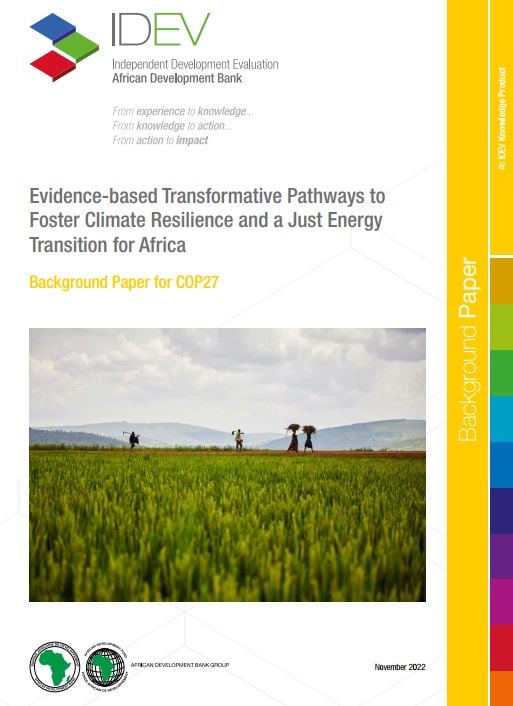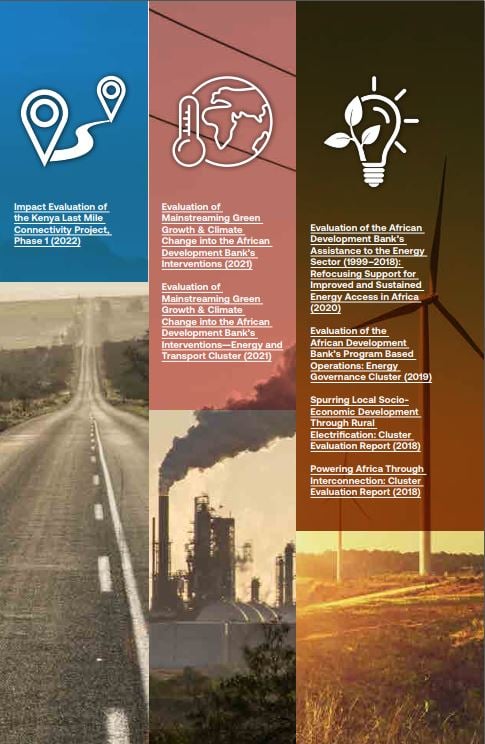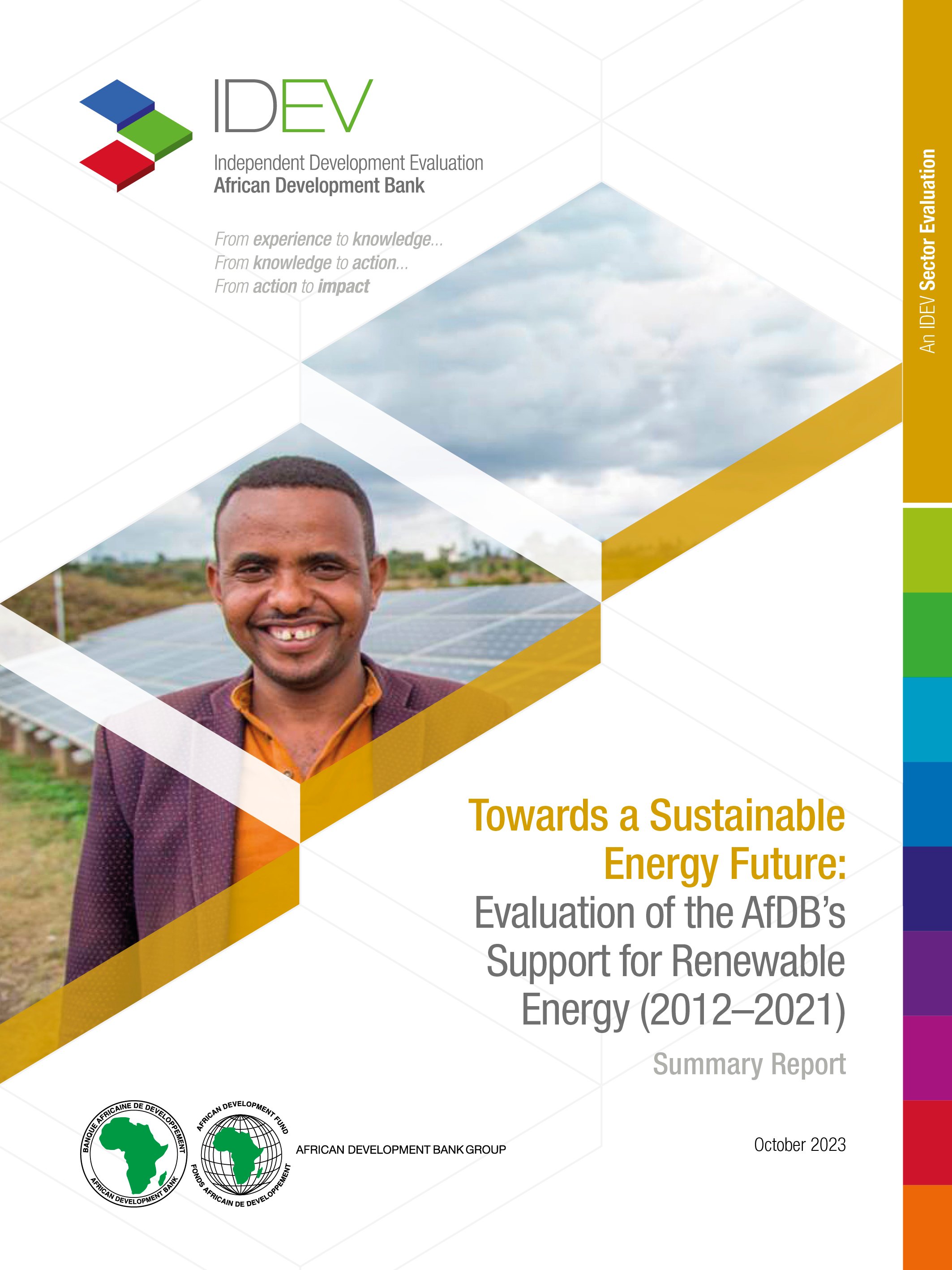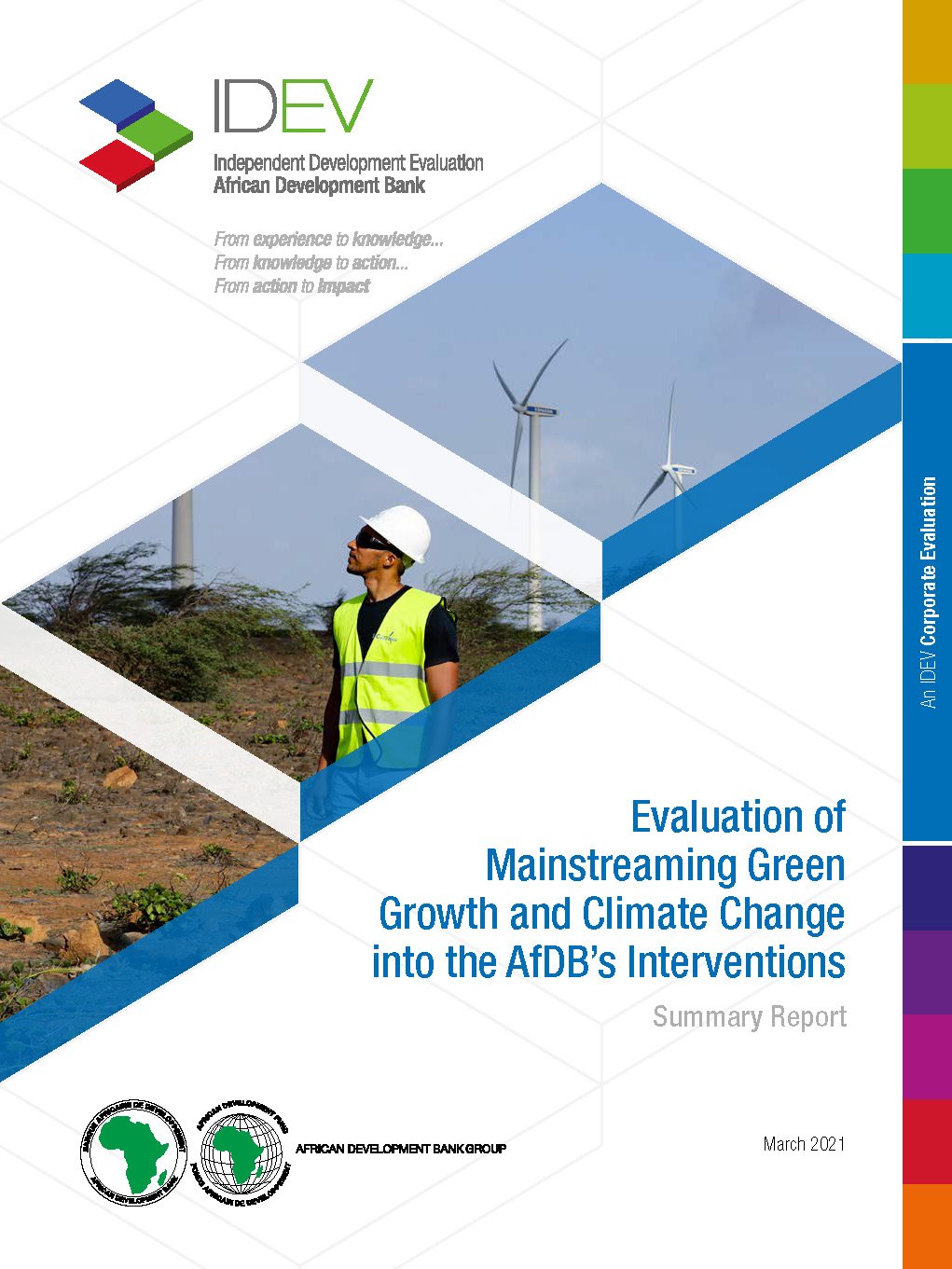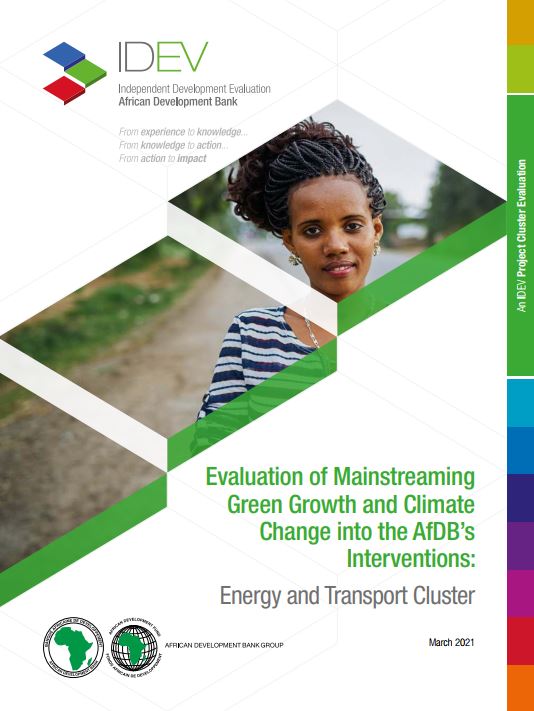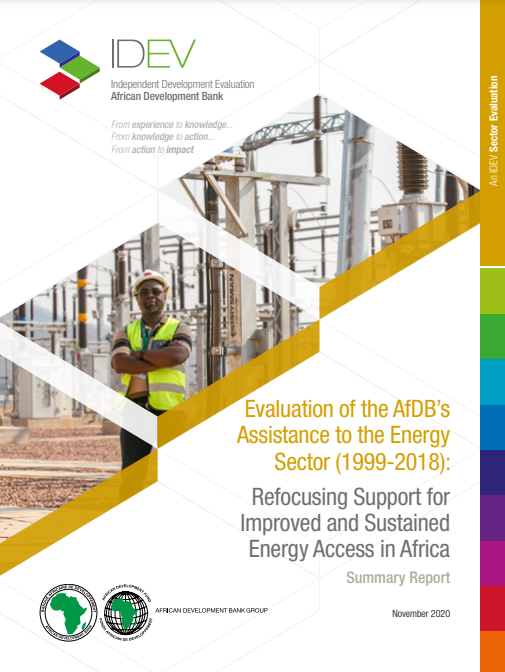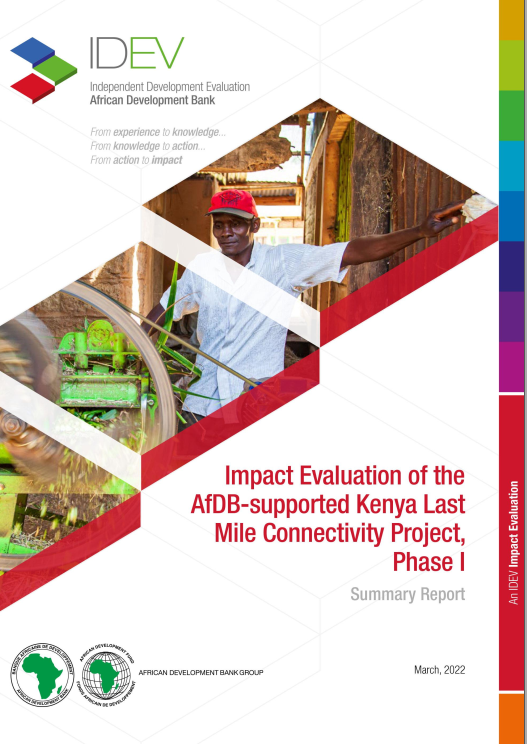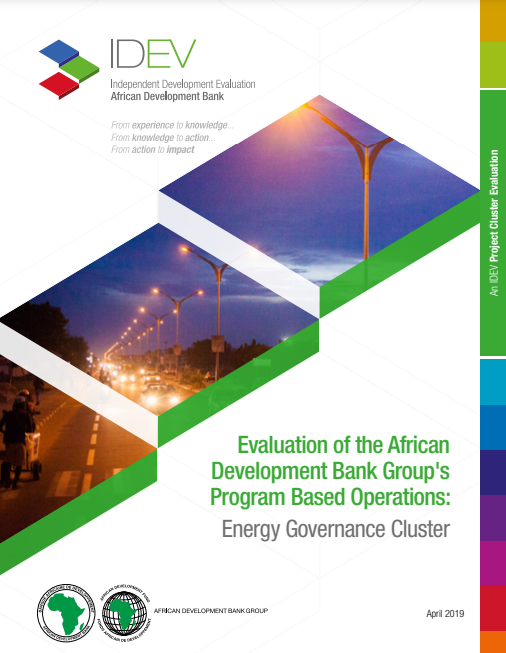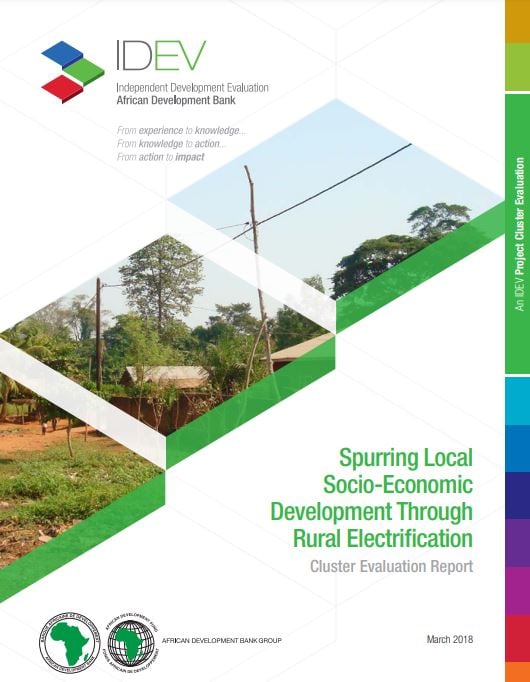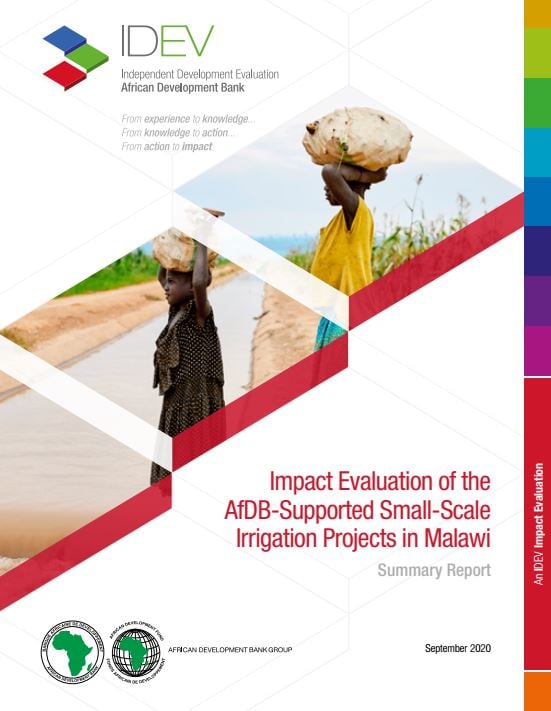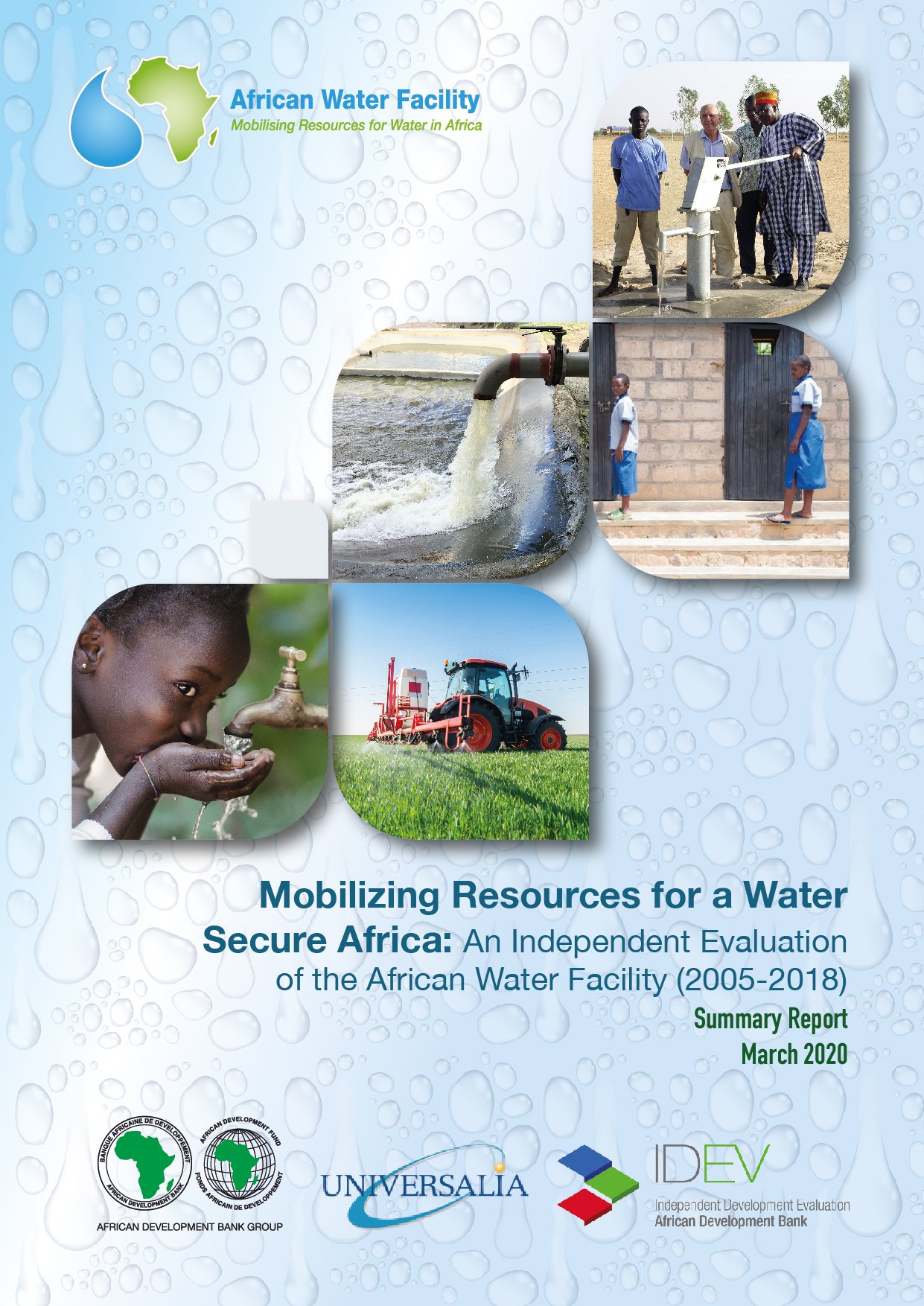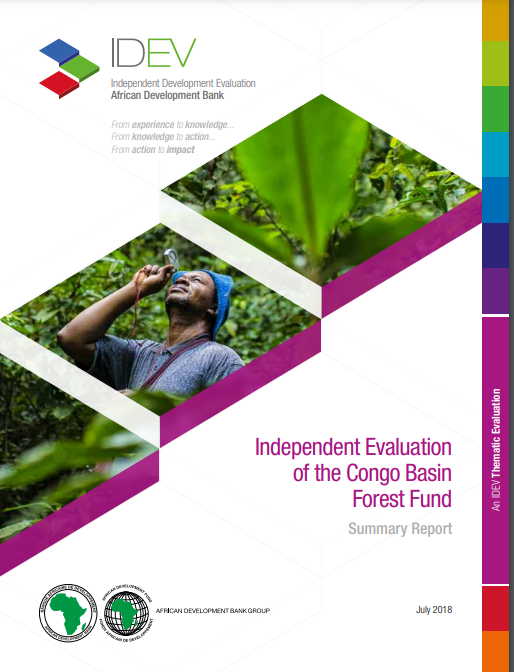Context
To respond effectively to Africa's needs to mitigate and adapt to climate change, transition to clean energy, and promote green growth, learning from past experience is critical. IDEV is contributing to climate change resilience and green growth with relevant and actionable knowledge to help the African Development Bank accompany African countries. Armed with evaluative evidence, the Bank is emerging as a global leader among its peers in the development sphere.
To gain more insights on IDEV’s work on climate resilience and a just energy transition, please see below related resources.
IDEV Shares Insights on Attracting the Private Sector to Finance Renewable Energy at a Climate Investment Funds Learning EventOn Friday November 10, 2023, IDEV Evaluator Joseph Mouanda participated in an event hosted by the Climate Investment Funds (CIF) on the theme of ‘Unlocking Opportunities for Private Sector Participation in Renewable Energy Integration’. |
|
Evidence-based Transformative Pathways to Foster Climate Resilience and a Just Energy Transition for Africa - Background Paper for COP27Evaluative evidence helps us to use information generated from experience to influence the ways in which appropriate interventions are developed or the ways they are managed. Hence, evaluations can bring significant value to learning and the forging of solutions, as part of the global efforts to foster climate resilience and a just energy transition in Africa. To this end, this background paper aims to provide critical evaluative knowledge for discussions at the COP27, by sharing the key highlights and insights from recent evaluations undertaken by Independent Development Evaluation (IDEV). These evaluations, related to energy, climate change, and green growth, aim to have informed the African Development Bank Group’s (AfDB) actions in supporting its Regional Member Countries (RMCs) to foster climate resilience and a just energy transition. |
|
Fostering Climate Resilience and a Just Energy Transition for Africa through Evaluative EvidenceIn supporting Regional Member Countries to build their climate resilience and make the transition to clean energy, the AfDB can draw on a wealth of evidence produced by IDEV to inform its policies, strategies, frameworks and operations in the areas of power, energy, climate change and green growth. A key recent evaluation is the Evaluation of Mainstreaming Green Growth & Climate Change into the AfDB's Interventions (2021). This and other evaluations present a number of findings, lessons, and recommendations for the Bank. |
|
Light up and Power Africa - Fast changing paradigmsOne of the sessions at the AfDB Evaluation Week 2022 was dedicated to evaluation of development in the energy sector. Energy sector experts from the African Development Bank met for a roundtable discussion with evaluation experts from IDEV and from Power Africa, a USAID-funded agency working closely with the Bank on several large-scale projects. The challenge for Africa is twofold –providing energy access to the 600 million Africans who live without electricity, and climate change adaptation to build resilience against the growing number of climate-related disasters. |
The main IDEV evaluations on the topic are presented as follow:
Reference Evaluations
Evaluation of the AfDB’s Support for Renewable Energy (2012-2021)The evaluation assessed the AfDB’s support for RE generation in the power sector, specifically for geothermal, hydropower, solar power, and wind power. It focused on both utility-grid-scale RE and smaller-scale, decentralized energy access solutions. It assessed the Bank’s support in terms of relevance, coherence, effectiveness, efficiency and sustainability, and drew lessons and recommendations to inform the design and implementation of future AfDB renewable energy interventions. |
|
Evaluation of Mainstreaming Green Growth and Climate Change into the AfDB's InterventionsThe evaluation considered all AfDB interventions: policies, strategies, guidelines, tools, action plans, and lending and non-lending operations in both the public and private sectors. It aimed at: (i) learning, by providing lessons and recommendations to address strategic, conceptual, and implementation issues related to Bank interventions that mainstream GG-CC and (ii) accountability, by reporting to the Board of Directors and other stakeholders on the results of the Bank's investments in activities included within its GG and CC strategies and frameworks. |
|
|
|
Evaluation of Mainstreaming Green Growth and Climate Change into the AfDB's Interventions: Energy and Transport ClusterThis project cluster evaluation of the AfDB's support for and mainstreaming of Green Growth and Climate Change (GG-CC) into its energy and transport interventions is a building block in the overall corporate evaluation of mainstreaming GG-CC into the AfDB's interventions. It covers seven energy and transport projects in five countries: Cameroon, Morocco, Mozambique, Rwanda and Senegal, for a total value of UA 394.4 million. It provides lessons and good practices to enable the Bank to improve the quality and performance of its interventions and inform the development of its new GG-CC strategic framework. Field trips and the review of over 1500 interventions provided the IDEV team with qualitative and quantitative data centered around two main questions: “How well has the Bank integrated green growth and climate change initiatives into its policies, strategies, tools and projects?" and “How well did the projects related to green growth and climate change perform?”. |
Evaluation of the AfDB’s Support to the Energy Sector in AfricaIDEV has carried out an evaluation of the Bank’s support to the energy sector for the period 1999-2018. During this period, the Bank committed nearly 18 billion USD to 306 projects in its Regional Member Countries. The evaluation assessed the management, measurement and reporting of the Bank’s assistance to the energy sector, in view of improving future operations. It also drew lessons on how the Bank can contribute most effectively to improving the performance of energy projects at the country and regional level. |
|
Impact Evaluation of the AfDB-supported Kenya Last Mile Connectivity Project, Phase 1The evaluation aimed to inform the mid-term review of the AfDB’s Strategy for the New Deal on Energy for Africa (NDEA) by estimating the causal impact of the project. The evaluation generated lessons and provided recommendations to enhance the impacts of ongoing and future electricity access projects. |
|
Evaluation Of The African Development Bank’s Program Based Operations: Energy Governance ClusterThe evaluation of the energy governance cluster Program Based Operations (PBOs) is one of seven components of a broader evaluation on the use of PBOs by the AfDB in 2012-2017. The evaluation examined eight PBOs focused on energy, which the AfDB approved and implemented in five countries (Angola, Burkina Faso, Comoros, Nigeria and Tanzania). |
|
Spurring Local Socio-Economic Development Through Rural Electrification Cluster Evaluation ReportThis report outlines the key findings of the synthesis of evaluations of completed rural electrification (RE) projects over the period 1999–2013. All of them on-grid, the projects under this review aimed to foster rural development and improve the living conditions of rural populations by supplying electric power to rural areas. |
|
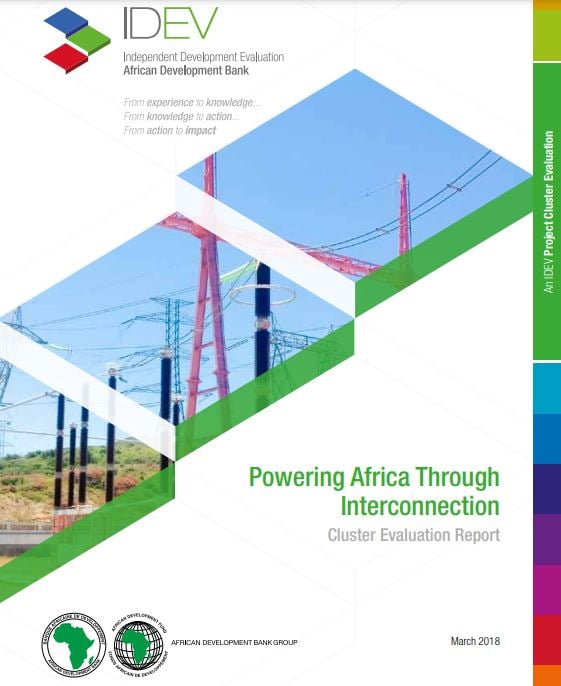 |
Powering Africa Through Interconnection
|
Impact Evaluation of the African Development Bank-supported small-scale irrigation projects in MalawiIDEV has conducted an evaluation of the Bank’s support to two irrigation infrastructure development projects in Malawi of UA 15 million each, completed in 2014 and 2017, respectively. These were the 2006-2014 Smallholder Crop Production and Marketing Project that covered 13 districts across the nation and the 2009-2017 Agriculture Infrastructure Services Project, which covered seven districts in Southern Malawi. The evaluation aimed to generate knowledge and provide lessons to maximize the impact of ongoing and future irrigation development interventions. It applied a counterfactual approach, comparing the project beneficiaries with a control group, to measure and attribute the effects of the interventions. |
|
Mobilizing Resources for a Water Secure Africa: An Independent Evaluation of the African Water Facility (2005-2018)The African Water Facility (AWF) is a multilateral Special Fund that provides grants and technical assistance to enable governments, non-governmental organizations and private-public partnerships to address the increasing investment need for the development and management of water resources in Africa. After almost 15 years of implementation, during which the AWF had approved 118 operations in 52 countries for a total volume of USD 172 million, the African Development Bank (AfDB), the trustee of the AWF, commissioned an independent evaluation of the Facility. |
|
Evaluation of the Congo Basin Forest FundThe CBFF aims at alleviating poverty and mitigating climate change by reducing the rate of deforestation in the Congo Basin through the efficient management of its forest resources. The main objectives of this independent evaluation are: i) to provide learning from the Fund implementation – what worked and what did not work, and why?; (ii) to inform decisions of the donors, CBFF Governing Council and AfDB Board of Directors on the way forward for the CBFF; and (iii) to ensure accountability for CBFF investments in several key results areas towards donors, AfDB Board, and the Central Africa Forest Commission (COMIFAC). |

